The traditional long summer break from school in the U.S. can mean fun in the sun—and summer learning loss (SLL). While SLL is a documented phenomenon, not all K-12 students lose the same skills and knowledge over the summer. In fact, some make gains over the summer holiday. One of the most important things students can do to improve is read. And reading can be a powerful driver of learning for adults as well as K-12 students.
In this episode of the Leading Learning Podcast, co-hosts Jeff Cobb and Celisa Steele offer a preview of their summer reading list, each sharing one book of nonfiction, one of fiction, and a wildcard—with a few bonus books thrown in for good measure.
To tune in, listen below. To make sure you catch all future episodes, be sure to subscribe via RSS, Apple Podcasts, Spotify, Stitcher Radio, iHeartRadio, PodBean, or any podcatcher service you may use (e.g., Overcast). And, if you like the podcast, be sure to give it a tweet.
Listen to the Show
Access the Transcript
Download a PDF transcript of this episode’s audio.
Read the Show Notes
Intro: [00:00:00]
Summer Learning Loss
Celisa Steele: [00:01:04] As you might imagine, summer learning loss can get quite political. But for the sake of our conversation today, we simply want to make the point that for some students, SLL (yes, there is an acronym for that) is real. And it varies. According to a national study whose results were published in the summer of 2020, more than half of students suffered a learning loss over five consecutive summers, and kids in that group lost an average of 39 percent of the gains they had made over the school year. That’s a 39-percent loss over the summer, on average. But, if you look at the numbers that make up that average, you see a different story. Some kids lose as much as 90 percent (yikes) of what they learned in a school year over the summer. But other kids don’t slide back over the summer, and they don’t even just hold steady. In fact, they improve, up to 32 percent of their in-school gains over the summer.
Jeff Cobb: [00:02:07] Of course, our focus at Leading Learning in general and on the Leading Learning Podcast is on adult lifelong learners, not K-12 students. But what’s interesting in that data that you shared, Celisa, is that the same span of time—those weeks of summer vacation—can be a learning loss for some and a learning gain for others. Which leads to the question of what individuals can do to make sure that we wind up with gains, not losses.
Celisa Steele: [00:02:37] The short answer is to do something that expands what you know. And reading is a great way to do that.
Jeff Cobb: [00:02:45] Which is why we’re focusing this episode on our 2023 beach reads.
Celisa Steele: [00:02:51] Well, I’m not sure these are going to actually count as beach reads, but we will, at least, each share three books, and we’re going to plan to crack their covers this summer. We’ll share a little bit about why we picked these books and what we hope to learn from them.
Jeff Cobb: [00:03:07] Yes, I think it’s doubtful that I’m going to be reading these on the beach, but who knows? We’ll see. But definitely summer. We’ll each share a book of fiction, a book of nonfiction, and then a wild card.
Nonfiction Book Recommendations
Beyond Disruption: Innovate and Achieve Growth Without Displacing Industries, Companies, or Jobs
Celisa Steele: [00:03:21] So let’s dig in, and let’s start with nonfiction, and I can kick things off for us. I plan to read Beyond Disruption: Innovate and Achieve Growth Without Displacing Industries, Companies, or Jobs. That’s by W. Chan Kim and Renée Mauborgne. And I am really excited about this book. In fact, I think we’ve already made at least one reference to it in the podcasts out earlier this year. But this is a new book by folks whose work we know, whose work we admire, and whose work we use. We are big fans of their book Blue Ocean Strategy, and I’m really interested in and in fact compelled by the pitch of this new book. The concept is that innovation and disruption so often go hand in hand, but they make the argument that innovation doesn’t have to be disruptive. Innovation doesn’t have to put people out of jobs or organizations out of business. And I really like this idea that innovation can be creative rather than destructive. I get the sense that part of what they’re doing is making an argument for the double bottom line—i.e., innovation that’s good for the business that’s innovating but also good for society.
Jeff Cobb: [00:04:40] Yes. I think this will probably be a theme throughout this episode, but this is also one I will most likely be reading as well, for many of the same reasons. Also a big fan of Kim and Mauborgne and their Blue Ocean Strategy work. This feels to me like a response to the classic creative destruction idea from economics, people like Joseph Schumpeter and then also, in the innovation world, people like Clayton Christensen. So I’m eager to see what they do with this.
Celisa Steele: [00:05:13] Right. I’m interested in that general concept. But in terms of what I hope to learn, I also hope to get some practical ways to think about what they are calling nondisruptive creation. And I’m thinking that those ideas then may apply to our own work here at Tagoras and Leading Learning and may also help us work with organizations that we help through consulting and other services as well.
Jeff Cobb: [00:05:38] All right. What I think is probably soon to be yet another classic from Kim and Mauborgne in the business world. I’m sort of in the business world. I’m definitely in the business world myself with my nonfiction work here, but it gets into culture, communication, and a little bit philosophical as well. So what I am going to read in the nonfiction area is actually…well, I’m cheating a little bit because it’s a re-read. I will say I’m a big fan of re-reading. I think I’ve heard people like Stephen King—the famous author—say he will never read a book twice and that, once you read it, you move on. I don’t agree with that at all. Even for fiction, I will re-read. But I think, if you want to learn, it’s great to go back to a book because, of course, you’re going to forget. No matter how good you are about taking notes and everything else, you’re going to forget a ton of what you’ve read. In fact, I find that I often forget pretty much 100 percent of what I’ve read.
Celisa Steele: [00:06:38] Ebbinghaus right there, right?
Jeff Cobb: [00:06:39] There you go. My 90 percent happens like that.
But, even if you do remember what you’ve read before, anytime you go back to a book, a movie, or to whatever, you’re just in a different place. And so it’s going to mean something different to you, and you’re going to learn something different in the process.
Jeff Cobb
Celisa Steele: [00:06:59] That’s a long lead-up to whatever you’re going to tell us.
Humble Inquiry: The Gentle Art of Asking Instead of Telling
Jeff Cobb: [00:07:01] Yes, that’s a long lead-up. I’m sure everybody’s really curious about what this is. The book that I have in mind is Humble Inquiry: The Gentle Art of Asking Instead of Telling. And this is a book from Edgar Schein. Edgar Schein was a professor at MIT in business. I said this was coming out of business. I’m not sure if he was actually in the business department, but he’s associated with organizational behavior, organizational development, and culture. He did a lot of work in that throughout a very long, distinguished career. He passed away earlier this year, in January. I’d been aware of his work for a long time and had read Humble Inquiry. I want to dig into more of his work than I have because he was a major figure in organizational behavior and culture. He’s one of those types of business thinkers that I just don’t feel like you get as much of anymore. I’ve mentioned Clayton Christensen earlier. I think he was a little bit in this vein, and he passed away recently as well. But these are people who I put in the same camp as Peter Drucker, who I think is the towering figure of the business philosopher. And so I want to read this again, partly to honor him, and I feel like he’s got a great body of work that I want to explore. But I also feel like we’re in this period, in our own culture, where there’s just an awful lot of telling going on.
Jeff Cobb: [00:08:32] When you think about social media, you think about the rise of the influencer out there—just a lot of people expressing their opinions and telling other people what to do, which, of course, has always been the case, but we have a megaphone like we’ve never had before and doing that sort of thing. And so this idea of just being good at asking, being good at listening, and bringing that element of humility to the process. I’ve written here and there about humility. In fact, I think in our last newsletter, I raised humility as an aspect of leadership. People will use that term, but I think it’s greatly underappreciated and undervalued. What I do remember of this book—and I’ll say it’s a short one, so anybody who doesn’t feel like they can tackle anything huge this summer…I think I’ve got it right here. I can see it’s barely over 100 pages. It’s definitely within anybody’s capabilities to get through. I remember it being a good read and just a very helpful read, and so I’m hoping to reinvigorate my own ability to ask well and to ask humbly.
Celisa Steele: [00:09:44] I think that idea of humility and being humble—being a humble leader—is interesting. And then it seems like there’s a bit of a tactical aspect here, which is one way to go about being humble is through asking and making sure that you’re doing that effectively. It sounds very interesting. I think I might, as you said, probably put yours on my list, just as you’re putting mine on your list.
Jeff Cobb: [00:10:10] That’s the way it always happens with these book lists. But, yes, hopefully, by the end of the summer, I will have learned to be a better asker, a more humble asker. I’d say, too, that this whole asking with humility really is about learning. You’re listening. You really are taking in what somebody else is telling you and sharing with you. That’s just so fundamental to being a good learner. So, hopefully, I will be learning to be a better learner as I re-read Edgar Schein’s Humble Inquiry.
Celisa Steele: [00:10:45] Even just what you shared there—not having read Schein’s work yet—it does seem aligned with, potentially, a beginner’s mind and this idea of coming to a subject as a learner with no expectations, and just being willing to learn can be very powerful. You said you cheated by going back to a re-read, but one of the things that can be so overwhelming is that there are so many things to read, so many books and options out there. And so, for me, I do always like to look at authors and thinkers whose work I already know. And then you have somebody like Kim and Mauborgne that have a new book out, and so I’m going to go check that out. Or even re-reading in this camp—what is it that you’ve actually already found useful? And then, as you said, you’re bringing a different experience and a different point of view because you’re re-reading it in a different time, so going back to those. I do know that there are some writers—Kim and Mauborgne are among them—but I think there are others, like Dan Pink, who could pretty much write about anything, and I would pick it up and be curious because I know that they approach it in a deliberate, thoughtful, and typically slightly off point of view, I might say. They bring a little bit of a different perspective than you’re going to get from anyone else.
Jeff Cobb: [00:12:04] I definitely agree with that. I have re-read Pink. I have re-read Kim and Mauborgne. And like you, if something is coming out from them, I will look for it. Another one for me is Yuval Noah Harari—I hope I’m not butchering his name—the author of Sapiens and Homo Deus. Just a very, very interesting thinker. In fact, I re-read Sapiens last summer and was struck again by what an amazing book it is. So folks are getting lots of suggestions from us besides the ones that we’re actually offering.
Celisa Steele: [00:12:31] We’re really only offering three each. That’s right.
Leading Learning Newsletter
[00:12:38] As someone who listens to the Leading Learning Podcast, you should know about the Leading Learning newsletter.
The newsletter is inbox intelligence for learning businesses and helps you understand the latest technology, marketing, and learning trends and grow your learning business. Best of all, it’s a free resource. As a subscriber, you’ll get Leading Links, our monthly curated collection of resources to help you grow the reach, revenue, and impact of your learning business; the podcast digest, a monthly summary of podcast episodes released during the previous month; plus periodic announcements highlighting Leading Learning Webinars and other educational opportunities designed to benefit learning business professionals.
Fiction Book Recommendations
Jeff Cobb: [00:13:36] So we’ve covered nonfiction. Now let’s look at what we’re going to read fiction-wise. I think I’ve said it before on the podcast at some point—I know I’ve written it at points—in spite of my having come out of a background in literature, before this whole learning business world we’re in, I was on the path to be a literature professor, so I read a lot of fiction. But I’ve gotten to a point in my life where I think I don’t automatically appreciate fiction the way I used to. I’ll go for months at a time without reading a work of fiction. And, when I finally come back and read a good one, I’m immediately like, “Oh, yeah, I understand why it is so important to read fiction, not just to go for the facts and the history and everything else.” Fiction is just such a rich experience that can teach you so much. I forget that. And I should not forget that. I need to remember it constantly. And, hopefully, we will help our listeners remember that during this episode.
Celisa Steele: [00:14:37] So what fiction are you going to recommend to our listeners today?
The Guest Lecture
Jeff Cobb: [00:14:44] This is an area where I’m also a fan of re-reading, but I’m going to go for something new on this one, and one I happened to stumble across that just struck me—and I thought I’ve got to give this a try—is a book called The Guest Lecture by Martin Riker, and I’m hoping I’m pronouncing that last name correctly. It’s R- I- K- E- R, which I believe is Riker. I think I first stumbled across this because somebody had a little blurb about it, something like Inside Higher Education. But then I’ve also seen it talked about in The New York Times. And, as you might guess, it’s about an academic, and my understanding is the general setup is that a woman who’s an economist has been denied tenure at the university she’s at. Unfortunately, a common academic situation. In the aftermath of that, she has to deliver—I guess she’s already been booked to deliver—this lecture on optimism and John Maynard Keynes. John Maynard Keynes—economists have come up already in this episode—towering economist, one of the big ones from the early half of the 20th century, whose influence we still feel greatly. So she’s supposed to be talking about him, and she’s apparently lying in bed in a hotel room with her husband and child there, who’ve come along with her.
Jeff Cobb: [00:16:06] And she’s awake in the middle of the night and doesn’t feel prepared at all to give this lecture. She’s been dealing with the aftermath of not getting tenure, having to support a family, and all that sort of stuff. And she’s trying to memorize the points of her speech. She’s actually using the method of loci—which I’ve written about before as a memorization method—and is engaging with Keynes as she’s imagining the speech. It just sounded like a really interesting thought experiment and setup. And being somebody who’s often awake in the middle of the night and thinking about things, that probably just resonated with me. I think it’s interesting to read the reviews on it because it’s one of those books that there are people who give it one and two stars because they just hate this kind of thing, this sort of setup, and there are people who give it five stars, and it’s brilliant. I suspect I’m probably going to be more in the five-star range, but we’ll see.
David Copperfield
Celisa Steele: [00:16:56] I do remember reading about that book as well. So, again, I will probably want to steal it from you when you’re done with it. In terms of the fiction that I’m going to suggest, I’m going to go to a classic. It’s a classic that I’ve never read, though. It’s David Copperfield by Charles Dickens. I’ve read other Dickens, but I’m interested in this Dickens, this Dickens now, because I just finished Barbara Kingsolver’s Demon Copperhead, and that was a co-winner of the 2023 Pulitzer Prize in fiction. And Barbara Kingsolver, I’ve read her other work, so she falls in that Pink and Kim and Mauborgne camp, where she puts something out there, I want to read it. But she used David Copperfieldas the framework for her book Demon Copperhead and recast the story and modernized it. It’s set in modern-day Appalachia, specifically Virginia. So not too far from where we’re recording this. And so I’m just very interested to better appreciate what Kingsolver was doing in her novel, where she’s adapting that classic by Dickens. And I’ll also say, as a bonus, it’s really long. So I figure if I dig into this one, it’ll keep me covered in reading for a lot of the summer. It’s over 1,000 pages. Even if I didn’t pick any other books this summer, that might cover my summer reading.
Jeff Cobb: [00:18:23] And, once again, we were overlapping significantly here because, right now, I have just started Demon Copperhead, having borrowed your copy of it, and I’m looking forward to doing that. Kingsolver, again, great writer. I know I first became familiar with her—I think you did too—through The Poisonwood Bible years ago, which, again, we’re throwing in other recommendations here with our main ones, and I love her. Is it Animal, Vegetable, Miracle?
Celisa Steele: [00:18:49] Yes.
Jeff Cobb: [00:18:49] Is that the name of the book where she…?
Celisa Steele: [00:18:51] Nonfiction.
Jeff Cobb: [00:18:52] Nonfiction. She and her family go off the grid and are really living from the land for a year, at least.
Celisa Steele: [00:18:58] It’s a year, yes.
Jeff Cobb: [00:18:59] A very good book. I’d recommend that one as well. And I will almost certainly read David Copperfield too, after Demon Copperhead. Dickens—a big influence. I mentioned earlier my path towards being a literature professor. I think it was A Tale of Two Cities that probably tipped me in that direction, way back in ninth grade or so.
Celisa Steele: [00:19:20] I feel like Demon Copperhead has a lot to say about the roots of social inequities in the U.S., how those came to be, and how they remain today. And I have the sense that David Copperfield will also look at some of those social, societal, and cultural issues that can create such problems. I think that that is a place where sometimes fiction can feel a little bit less pragmatic and practical. But I also do think that the empathy and the bigger-picture thinking about how things come to be and why they come to be—even if they come from a work of fiction—can be applied to the real world and help us understand what’s going on around us.
Jeff Cobb: [00:20:07] Yes, I think nonfiction does this too, but I think more so fiction just gives you this thought space to work, play, and learn in.
Celisa Steele: [00:20:21] I will say that the Dickens is essentially a recommendation. We were talking earlier about there are so many books, and so how do you find good ones? It can be going back to authors whose work you already know, either because you read it or you read other works by them. But recommendations are another great way. Obviously, we’re making some recommendations for you, dear listener, as we’re talking today. But the Dickens was an indirect recommendation. Barbara Kingsolver is essentially pointing us all back to David Copperfield when she’s basing her own novel on that. I also think that’s another way to look at recommendations. If you find a book, a thinker, or an author that you admire, look at who they read or who they are basing their work on, and that can lead to interesting paths to explore.
Wild Card Book Recommendations
Our Andromeda
Celisa Steele: [00:21:18] This brings us to our third recommendation each—at least our third main recommendation. And this is the wild card category. And, for my wild card, I am picking a collection of poetry called Our Andromeda by Brenda Shaughnessy. We’ve talked about recommendations several times already in the podcast. This is a book that was specifically recommended to me by a poet-teacher. He was commenting on some of my poems and recommended Shaughnessy’s work as a potential example of how I might achieve something in a poem.
Celisa Steele: [00:21:53] I know her work a little bit, but not deeply. I know single poems, and so I’m looking forward to digging in and seeing how she puts a full collection together. What I do know of her work is that it’s deeply inventive, and I thought I might just share the opening of a poem. It’s not from Our Andromeda. This is from one of her other books. But this is a poem called “I Have a Time Machine”:
But unfortunately it can only travel into the future
at a rate of one second per second,
which seems slow to the physicists and to the grant
committees and even to me.
And the poem goes on from there. But I think you get a sense of her inventiveness—this idea of a time machine, but it can only go into the future at the rate of one second per one second. And so, essentially, it’s what we’re living, and it’s our life. She has these wonderful, deeply inventive ways of thinking about the world, and so I look forward to digging into that collection and beginning to deconstruct the poems and the collection and understanding a little bit how she put individual poems together and then put them together into this collection.
No One to Meet: Imitation and Originality in the Songs of Bob Dylan
Jeff Cobb: [00:23:06] I like it when books have an interesting setup like that. It goes back to what I was saying about The Guest Lecture and that feeling like an interesting setup to me. Of course, it can go terribly wrong, but, when it goes right, it’s inspiring to see somebody take a concept like that and run with it and what they’re able to do with it. That may also be one that I take a look at, but I’ll offer up my own wild card here, which is No One to Meet: Imitation and Originality in the Songs of Bob Dylan. And this is by Rafael Falco. I have not read anything by Rafael Falco before, so this will be my first venture into that. But folks who know me know that I am something of an armchair rock historian. I like to read biographies of bands and individual musicians, and Dylan is somebody I’ve read about before. I’ve read Dylan before because he is a writer in addition to being a songwriter.
Celisa Steele: [00:24:13] A Nobel Prize-winning writer.
Jeff Cobb: [00:24:14] He’s a Nobel Prize winner. That’s right. And he writes poetry. He writes biographical nonfiction-type stuff. I have his The Philosophy of Modern Song on the bedside table right now, which I’ve read maybe a quarter of. I have to say, I find it very difficult to read Bob himself when he writes. I’m not a big fan of his narrative voice even though I’m a big fan of his music. But reading about him is a different matter, so I’m looking forward to this. He’s obviously such an iconic figure, and the book looks like it’s positioning him as working in a similar way to how a Renaissance writer might have written and using this kind of art of imitation to then make it into something completely new. So there’s an aspect of innovation in here—to go back to Kim and Mauborgne originally—but this is innovation in the more artistic sense. I want to see how he gets positioned in a bigger cultural tradition that goes way back into the Renaissance and then, obviously, with somebody who’s shaped our current culture so much that I think that’s just going to be an interesting aspect of this.
Celisa Steele: [00:25:25] Well, I think it’s interesting to me just in that title, the subtitle, Imitation and Originality in the Songs of Bob Dylan. I feel like he gets held up as this paradigm of originality and this amazing new voice. I like this idea of looking at what was he imitating? What was he looking to from the past?
Jeff Cobb: [00:25:45] It’s pretty well established that, of course, he was drawing on people like Woody Guthrie and the folk tradition and that sort of thing. But, certainly, he turned it into something really different. And my understanding, too, is that this is more about his later body of work, not those “Blowin’ in the Wind”-type stuff that would have been drawing on somebody like Guthrie. So I’m interested to see how that goes. And, in terms of what I’m hoping to learn, it’s getting insight into tapping into other traditions, which, again, is what I understand this book to be about. And then, of course, aside from being an amateur or armchair rock philosopher-historian, I am also a singer-songwriter. So I’m hoping I pick up a tip or two from the maestro there on what I can do with my own songs.
Celisa Steele: [00:26:30] Book reviews, book reports, and other after-the-fact reflections on books, I feel like those are pretty common. We get a lot of those in our world and in our culture. But I really like this idea of giving some focus on the front end. How are we selecting books? What questions do we bring to reading a book, or what do we hope that we might get from that read? It seems like, if you bring some of this pre-work to reading, that might deepen the reading experience and the learning that comes from it.
Reading, particularly reading guided by active inquiry and genuine curiosity, is a great way to learn. What do you plan to read?
Celisa Steele
We encourage you to give some thought to what you’ll read in the weeks ahead, and we’d love to hear what’s on your reading list.
Wrap-up: [00:27:28] In the comments, let us know what’s on your reading list.
To make sure you don’t miss new episodes, we encourage you to subscribe via RSS, Apple Podcasts, Spotify, Stitcher Radio, iHeartRadio, PodBean, or any podcatcher service you may use (e.g., Overcast). Subscribing also gives us some data on the impact of the podcast.
We’d also be grateful if you would take a minute to rate us on Apple Podcasts at leadinglearning.com/apple or wherever you listen. We personally appreciate reviews and ratings, and they help us show up when people search for content on leading a learning business.
Finally, consider following us and sharing the good word about Leading Learning. You can find us on Twitter, Facebook, and LinkedIn.

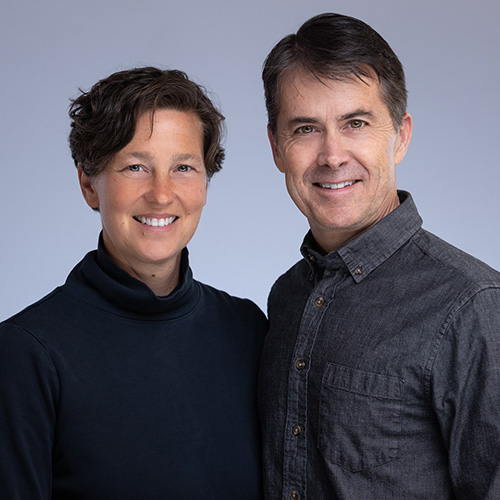
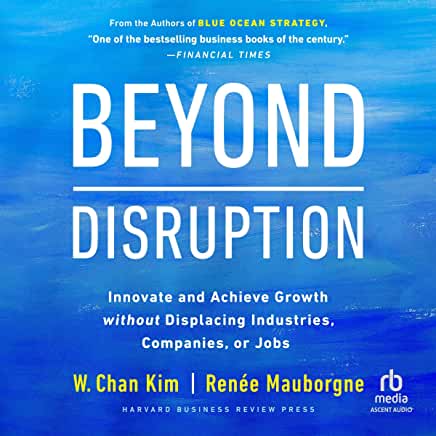
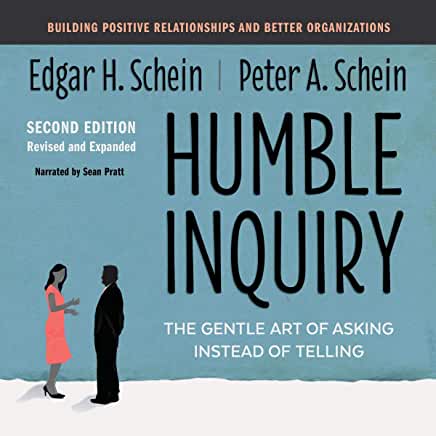

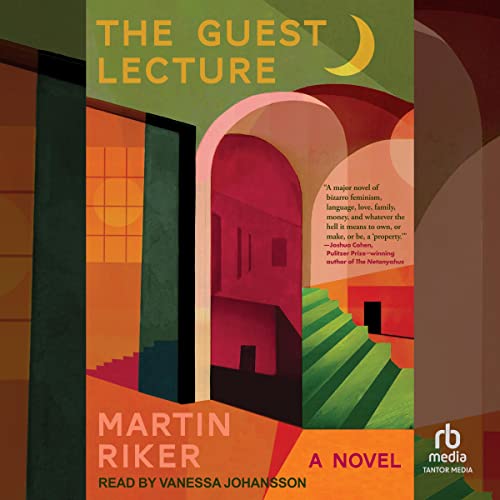
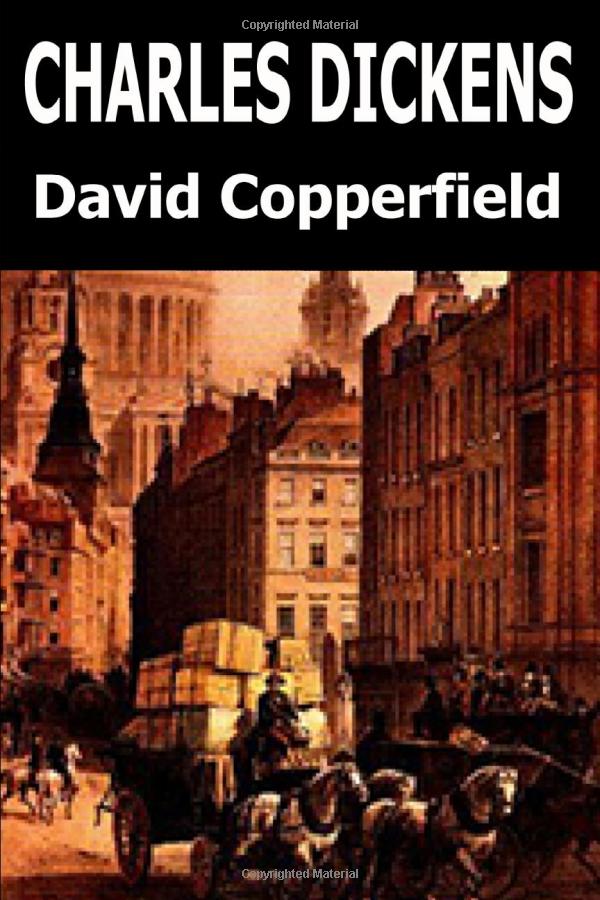
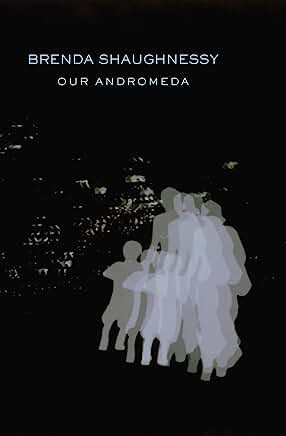
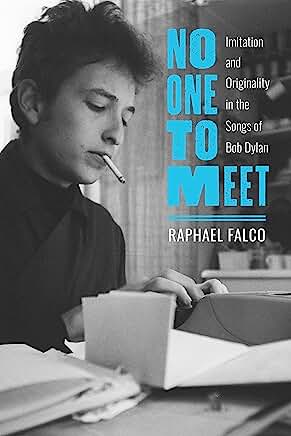
 Designing for Belonging with Dr. Susie Wise
Designing for Belonging with Dr. Susie Wise
Leave a Reply